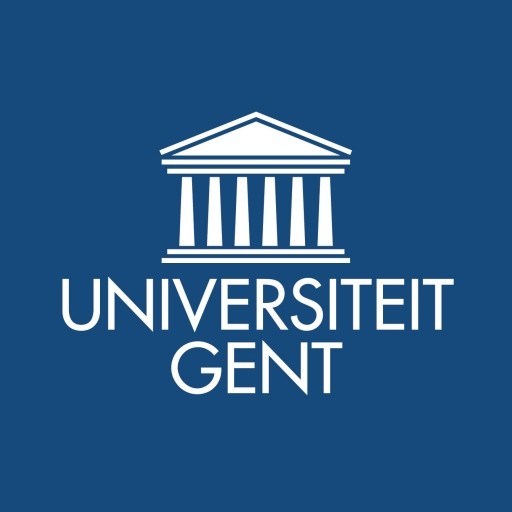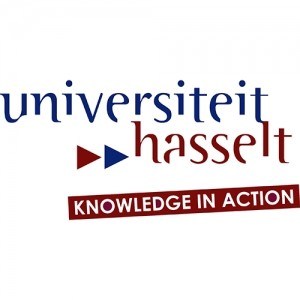Photos of university / #thefoundry_ugent
Operations Management is a dynamic and essential field of study that focuses on the efficient and effective planning, control, and oversight of production and service processes. At Ghent University, the Operations Management programme provides students with a comprehensive understanding of the core principles that underpin successful operations within various industries. The curriculum covers a wide range of topics, including supply chain management, production planning, quality assurance, logistics, and strategic decision-making, equipping graduates with the skills necessary to optimize processes, reduce costs, and improve service delivery. Students will engage with both theoretical frameworks and practical applications, ensuring they are prepared to tackle real-world challenges faced by organizations today. The programme emphasizes analytical thinking and problem-solving, fostering a mindset geared towards continuous improvement and innovation. Through a combination of lectures, case studies, and hands-on projects, students develop a deep understanding of how operations contribute to overall business success. Ghent University’s strong links with industry partners and organizations provide students with valuable internship opportunities, networking possibilities, and exposure to current trends and technologies in operations management. Graduates of this programme are well-positioned to pursue careers in logistics, supply chain management, production management, consulting, and beyond, in both national and international settings. The programme also serves as a solid foundation for those interested in further academic research or specialization in related fields. With a focus on sustainable practices and digital transformation, the Operations Management programme prepares students to become innovative leaders who can adapt to a rapidly changing global marketplace. By choosing this programme, students embark on a challenging yet rewarding educational journey that combines theory, practice, and strategic insight to shape the future of operations in various industries worldwide.
General Courses
- Strategic Management
- Environmental Technology
- Human Resources Management [en, nl]
- System Dynamics
- Business Skills [en, nl]
- Business-to-business Marketing
- Managing Service Organisations
- Implementation and Management of ICT within an Organisation
- Innovation and Technology Management
- Business Process Management
- Financing High Tech Entrepreneurial Companies
- High Tech Marketing
Courses Related to the Main Subject
- Advanced Production Management
- Project Management
- Total Quality Management
- Decision Making for Business
- Supply Chain Management
Elective Advanced Courses
- Analytical Customer Relationship Management
- Pricing and Revenue Management
- Predictive and Prescriptive Analytics
- Big Data
- Investment Analysis
- Financial Risk Management
- Financial Planning
- Advanced Investment Analysis
- Valuation and Financial Risk Management
- Bayesian Statistics
- Econometrics: Time Series Analysis
- International Business Cases in IT
- Project-based Systems Analysis and Design
- Service Implementation
- Work Placement [nl]
- Artificial Intelligence
- Big Data Science
- Clean Technology
- Discrete Algorithms
- Rational Use of Materials
- Heuristics and Search Methods
- Methods Engineering and Work Measurement
- Information Management [nl]
- Information Technology and Data Processing
- Machine Learning
- Network Modelling and Design
- Quality Engineering and Industrial Statistics
- Queueing Theory
- Simulation of Manufacturing and Service Systems
- Software Architecture
- Software Management
- Total Plant Automation
Elective General Courses
- Economics of Banking
- Economics of Financial Markets
- Advanced Econometrics: Non-linear Methods
- Microeconomics: Decision Theory [nl]
- Monetary Economics
- Insurances [nl]
- Audit
- Management Control
- Taxation
- Advanced Financial Statement Analysis
- Market Research Methods
- Corporate Social Responsibility [nl]
- Ethics, Engineering and Society [nl]
- Health Economics [nl]
- Economic Analysis of Law [nl]
Elective Courses
- The Teacher within School and Society [nl]
- Interaction and Communication in the Classroom [nl]
- Classroom Management and Reflection
- Powerful Learning Environments [nl]
- Psychology of Adolescence
Requirements
- The course is open to students with at least a bachelor's degree
- Reference letters
- A TOEFL-TEST with a minimum score of 90 (internet-based). Test participants should specify the "institution code" 2643 for UGent and 0749 for KULeuven, so that the score can be sent directly to the university.
- An original 'academic test report form' (TRF) from IELTS with a minimum overall band score of 7.0.
- A certificate awarded by the Ghent University Language Centre confirming proficiency in English, CEF-level B2
- Certificate Practical English 5, Upper-Intermediate Academic English or Preparing for an English test, issued by the Ghent University Language Centre.
- Cambridge-ESOL: First certificate in English (FCE)
- Enrollment fee of Ghent University for academic year 2016-2017 is 890 € for EER-students and students from OESO-DAC-list (developing countries), all other students pay an enrollment fee of 5330 €
The financing of the Operations Management master’s program at Ghent University is primarily supported through a combination of tuition fees, government funding, and financial aid opportunities. Tuition fees for international students are set according to the university's fee structure, which is subject to annual adjustments and varies depending on the student’s nationality and residence status. Belgian students benefit from lower tuition rates due to subsidies provided by the Flemish government, reflecting the university’s commitment to accessible higher education. The program may also be eligible for funding through national research grants and European Union programs aimed at promoting higher education and research excellence.
Students can explore various financial aid options, including scholarships, grants, and loans that are available through Ghent University and external organizations. The university offers scholarships based on academic merit, financial need, or specific demographic criteria, which can significantly reduce the financial burden of pursuing a master’s degree. Additionally, students are encouraged to apply for government student loans or financial aid schemes designed to support international students studying in Belgium. These programs often have specific eligibility criteria and application procedures, which students should review well in advance of their intended start date.
Part-time work opportunities are another source of income for students, with regulations allowing international students to work a limited number of hours during the academic year. Ghent University’s location in Ghent offers access to a vibrant job market where students can find part-time work in various sectors, including hospitality, retail, and university-related services. Such employment can help students manage living expenses and gain practical experience aligned with their field of study.
The university also promotes entrepreneurial initiatives and innovation grants, encouraging students to develop projects that can be funded through university-supported programs or external venture capitalists. Moreover, students are advised to seek sponsorships or partnerships from industry stakeholders interested in fostering talent in operations management and supply chain disciplines.
Overall, the financing of the Operations Management master’s program at Ghent University encompasses a diverse range of sources, ensuring that students have multiple avenues to fund their education. The university remains committed to making higher education accessible and strives to provide information and support for students in navigating financial options effectively.
Operations Management at Ghent University is a comprehensive program designed to equip students with the skills and knowledge necessary to efficiently oversee production processes, supply chains, and service operations in various industries. The curriculum focuses on core concepts such as process analysis, quality management, logistics, and strategic planning, ensuring graduates are well-prepared for managerial roles in a globalized economy. Students learn to optimize resource utilization, reduce costs, and improve overall operational efficiency through both theoretical coursework and practical applications. The program emphasizes a multidisciplinary approach, integrating aspects of technology, economics, and environmental sustainability to address modern challenges faced by organizations. Courses are taught by experienced faculty who are active researchers and industry practitioners, providing students with insights into current trends and real-world problems. The program offers a mix of lectures, case studies, projects, and internships, fostering critical thinking, problem-solving, and teamwork skills. International mobility opportunities are available, allowing students to participate in exchange programs and gain global perspectives. Graduates of Operations Management at Ghent University are equipped to pursue careers in manufacturing, logistics, consulting, and service industries, holding positions such as operations analyst, supply chain manager, production supervisor, or process improvement specialist. The university's strong industry links and career support services enhance employability post-graduation. Overall, the program emphasizes a practical, hands-on approach combined with rigorous academic training to prepare students for the dynamic field of operations management.



